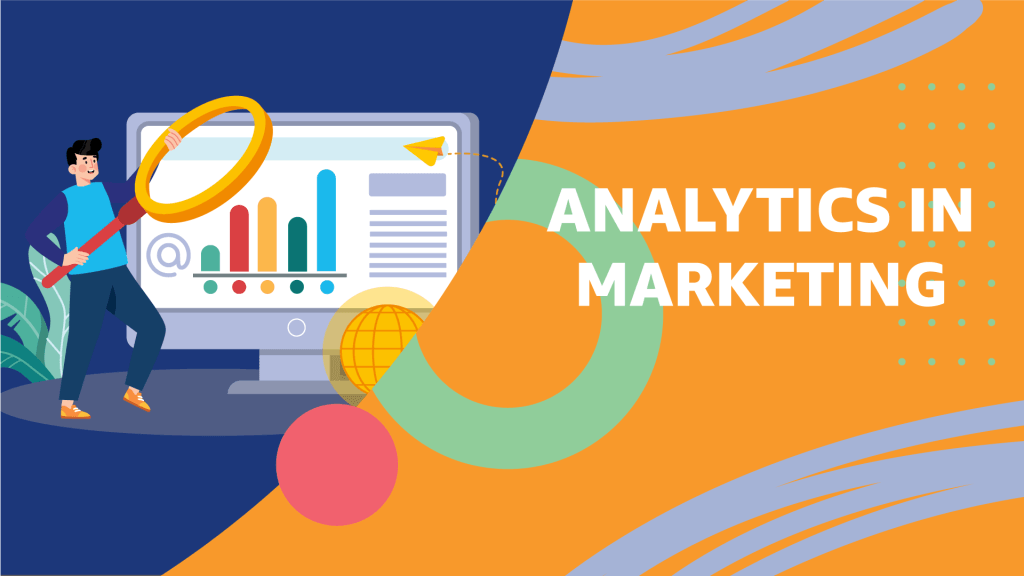Whether you’re a seasoned marketer or new to the digital realm, grasping the essence of analytics can significantly amplify your marketing endeavors. Prepare to navigate through the vast sea of data and transform it into your strongest ally. Join us as we unveil the secrets to leveraging analytics for a smarter, more effective marketing approach.
Understanding Analytics in Digital Marketing
What is Analytics in Digital Marketing?
In the realm of digital marketing, analytics serves as the compass guiding your strategy. It involves systematically analyzing data from your online channels to unearth invaluable insights. This could range from tracking user behavior on your website to measuring the performance of various marketing campaigns.
The Essence of Analytics:
At its core, analytics is about understanding patterns. By analyzing how visitors interact with your content, you can identify what captures their attention and what doesn’t. This insight is crucial, as it directs your efforts towards strategies that resonate with your audience.
Components of Digital Marketing Analytics:
- Traffic Analysis: Delve into the metrics to understand who visits your site, where they come from, and how they navigate through your pages. This includes examining sources such as direct visits, search engines, and social media referrals.
- Engagement Metrics: Gauge the level of interaction users have with your content. This could involve metrics like time spent on page, bounce rate, and the path they take through your site.
- Conversion Tracking: Essential for any marketing strategy, this involves understanding at what point visitors become leads or customers. By pinpointing these conversion points, you can better understand what drives your audience to take action.
- Customer Segmentation: Analyze your audience to create detailed profiles based on demographics, interests, and behavior. This segmentation allows for more targeted and effective marketing strategies.
- ROI Analysis: Ultimately, the goal of any marketing strategy is to generate a return on investment. Analytics enables you to track the profitability of your campaigns, helping you allocate resources to the most effective areas.
By mastering these components, marketers can create more targeted, efficient, and effective campaigns that truly resonate with their audience.

Key Benefits of Incorporating Analytics into Your Strategy
Data-Driven Decision Making:
The heart of analytics lies in its ability to turn data into decisions. Instead of relying on gut feelings, marketers can use concrete metrics to guide their strategies. This leads to more informed, effective, and ultimately successful marketing campaigns.
Enhanced Customer Insights:
Analytics opens a window into the customer’s journey. By understanding how users interact with your website and content, you can tailor your messaging and campaigns to meet their needs and preferences. This leads to higher engagement rates, increased loyalty, and a better overall customer experience.
Optimized Marketing Spend:
One of the most significant benefits of analytics is its impact on budget allocation. By identifying which channels and strategies yield the best results, you can optimize your spending, focusing your budget on the most effective tactics. This not only improves ROI but also avoids waste on underperforming initiatives.
Competitive Advantage:
In today’s competitive landscape, knowledge is power. Analytics provides insights not just into your performance but can also offer glimpses into industry trends and competitor success. By staying ahead of the curve, you can position your brand as a leader rather than a follower.
Improved Product Development:
Customer data isn’t just valuable for marketing; it’s also crucial for product development. By understanding what your customers want and need, you can tailor your products or services to better meet market demands, thereby increasing satisfaction and loyalty.
Streamlined User Experience:
Finally, analytics can significantly enhance the user experience on your website or app. By analyzing user behavior, you can identify and eliminate pain points, streamline navigation, and create a more enjoyable and efficient user journey.
By embracing these benefits, businesses can transform their digital marketing strategies into well-oiled machines, driving growth and success in the digital age.

How to Implement Analytics in Your Digital Marketing Efforts
Set Clear Objectives:
Before diving into data, establish what you want to achieve with your analytics efforts. Whether it’s increasing website traffic, boosting conversion rates, or enhancing customer engagement, having clear goals will guide your analytics strategy.
Choose the Right Tools:
There’s no shortage of analytics tools available, from Google Analytics to more specialized platforms. Select tools that align with your objectives and integrate well with your existing systems.
Collect and Analyze Data:
Start tracking key metrics related to your goals. This could include website traffic sources, user behavior, conversion rates, and social media engagement. Use this data to identify trends, strengths, and areas for improvement.
Implement Changes Based on Insights:
The real power of analytics lies in action. Use the insights gained from your data to make informed decisions and adjustments to your marketing strategies. This could involve tweaking your website, refining your content, or reallocating your budget.
Monitor and Adapt:
Digital marketing is ever-changing, and so should your strategies. Continuously monitor your analytics to see how your changes are performing. Be prepared to adapt your tactics based on new data and evolving market conditions.
Educate Your Team:
Ensure your team understands the importance of analytics and how to use them effectively. Regular training and discussions can help foster a data-driven culture within your organization.
By following these steps, businesses can seamlessly integrate analytics into their digital marketing efforts, leading to smarter strategies and better outcomes.
Common Questions About Digital Marketing Analytics Answered
Q1: How often should I check my analytics?
Ideally, monitor your metrics regularly to stay updated with your campaign’s performance. Weekly checks are standard for most, but this can vary based on your specific goals and campaigns. For more dynamic campaigns, daily monitoring may be necessary.
Q2: What is the most important metric to track?
The “most important” metric can vary depending on your business goals. However, conversion rates often stand out because they directly correlate with your ultimate objective—whether that’s sales, sign-ups, or another key action.
Q3: Can analytics help with customer retention?
Absolutely. Analytics can provide insights into customer behavior and preferences, helping you tailor experiences that increase satisfaction and loyalty, ultimately improving retention rates.
Q4: Are analytics just for online businesses?
No, businesses of all types can benefit from digital marketing analytics. Brick-and-mortar stores can track online campaigns that lead to in-store visits, combining digital and physical marketing strategies effectively.
Q5: How do I make data-driven decisions if I’m not a data expert?
Start with user-friendly analytics tools that provide clear insights and recommendations. Many platforms are designed with non-experts in mind. Additionally, consider training or hiring a data specialist to bridge the gap.

Future Trends in Digital Marketing Analytics
The future of digital marketing analytics is exciting and ever-evolving. Here are a few trends to watch:
Predictive Analytics: Using AI and machine learning, predictive analytics forecast future consumer behaviors based on historical data, helping marketers to be more proactive in their strategies.
Personalization at Scale: Advanced analytics will allow for even more personalized marketing experiences, tailored to individual user behaviors and preferences, at a much larger scale.
Voice and Visual Search: As voice and visual search become more popular, analytics will adapt to provide insights based on these new types of searches, influencing content and SEO strategies.
Privacy-First Analytics: With increasing concerns over data privacy, analytics tools will continue to evolve, focusing on user consent and anonymized data while still providing valuable insights.
Staying ahead of these trends will help ensure that your digital marketing strategies remain effective and relevant in the fast-paced digital world.

